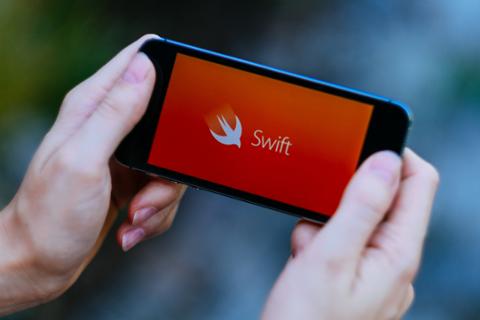For almost fifteen years, Google Android and Apple’s iOS have battled for supremacy of the mobile device OS market. Although iPhone users and Android users can argue for the relative merits of their preferred platform, the battle hasn’t resulted in a clear victor: rather, the market is effectively a duopoly between the two operating systems.
For tech professionals interested in mobile app development, you’re probably wondering if there’s a difference in the average salary for Android developers versus iOS developers. The short answer is “yes.” For those wishing to draw a portion of their income (or all of it) from app revenue, the Android vs. iOS question is more than just academic: Apple’s App Store and Google Play can likewise result in different kinds of revenue streams.
Google Android Developer vs. Apple iOS Developer Salaries
According to Lightcast, which crunches millions of job postings from across the country, developers who specialize in the iOS stack (which includes knowledge of Swift and Objective-C) can earn a median salary of $97,298. Those who specialize in Swift, Apple’s newer language for iOS development, can earn $98,890 per year; for Objective-C, Apple’s older language, it’s $99,000 per year.
Salaries vary by sources, of course. Glassdoor, for instance, pins the average iOS developer salary at $109,941 per year, and that number can swing wildly depending on a candidate’s experience, skills, where they’re based, and the prospective employer.
In addition to Swift and Objective-C, those who want a job as an iOS developer will need to master the following skills, based on an analysis of iOS developer job postings:
- Object-Oriented Analysis and Design (OOAD)
- Scrum
- Debugging
- Agile
- JavaScript Object Notation (JSON)
- Data Structures
- Software Architecture
- Multithread Programming
- Quality Assurance and Control
These are pretty standard software development skills; whether you’re self-taught or pursue a formal software engineering degree, you’ll eventually master many of these.
Glassdoor suggests Android developer pay is slightly lower, at $98,296 per year. Again, this varies from source to source; ZipRecruiter suggests it’s $122,529 per year. Again, much hinges on location and skills; according to job postings, many companies want Android developers to possess the following abilities:
- Java
- Kotlin
- Android Developer Portal/SDK
- Google Play Tools and APIs
- Material Design
- Android Studio
- Wireframing
- Principles of Mobile App Design/Development
Unlike iOS, which is restricted to Apple’s line of iPhones and iPads, Google Android runs on a bewildering array of devices. Depending on the company, you may be asked to build Android apps compatible with Samsung Galaxy devices, Google Pixel devices, and so on; it’s something to keep in mind as you apply.
Which App Store Pays More?
In 2020, The Verge crunched the numbers from Google’s most recent quarterly results (which offered additional insights into the company’s revenue streams, including what it’s made from YouTube and hardware), which revealed that Android developers have earned $80 billion since the operating system was launched.
That same year, a separate analysis found that Apple had paid roughly $155 billion to app developers since iOS and the App Store launched.
It seems unlikely that the almost 2:1 ratio in respective app store payments has shifted over the past three years. For smaller firms and independent developers who want to earn money from application development, the sheer density of Google Play and Apple’s App Store make it hard for any one product to stand out, even with significant marketing spend. Over the past several years, the optimal timeframe that apps have to rack up downloads before fading into obscurity has progressively shrunk—developers only have 17 weeks or so to build up an audience.
Perhaps that’s a core reason why Apple and Google have encouraged developers to shift from one-time app purchases to a subscription model. For example, Apple reduces its 30 percent cut of subscription-based revenues to 15 percent once a user has been subscribed for more than 12 months, and it’s claimed that overall subscription rates are up. Developers are also relying on in-app ads as a big revenue stream.
Whatever their revenue choices, though, this new data from Google highlights one of the starkest divisions confronting developers within the mobile ecosystem: Android might get you eyeballs… but iOS will get you paid.



